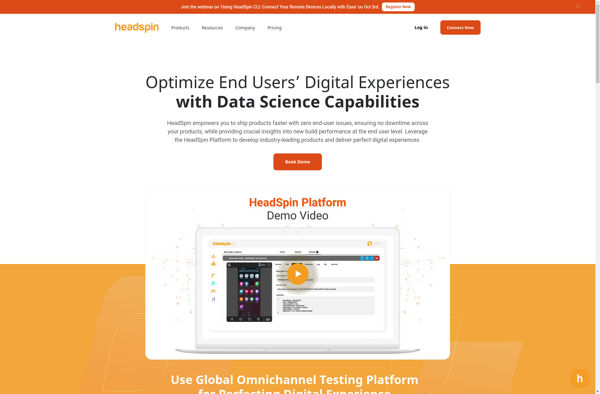Description: Sauce Labs is a cloud-based web and mobile app testing platform that provides automated and manual testing capabilities across various browsers, devices and operating systems. It allows teams to test the quality and functionality of their apps across many environments.
Type: Open Source Test Automation Framework
Founded: 2011
Primary Use: Mobile app testing automation
Supported Platforms: iOS, Android, Windows
Description: Headspin is a cloud-based performance testing platform for mobile and web applications. It allows developers to test their apps for performance, functionality, security, and reliability across real devices, networks, and geographic locations.
Type: Cloud-based Test Automation Platform
Founded: 2015
Primary Use: Web, mobile, and API testing
Supported Platforms: Web, iOS, Android, API

